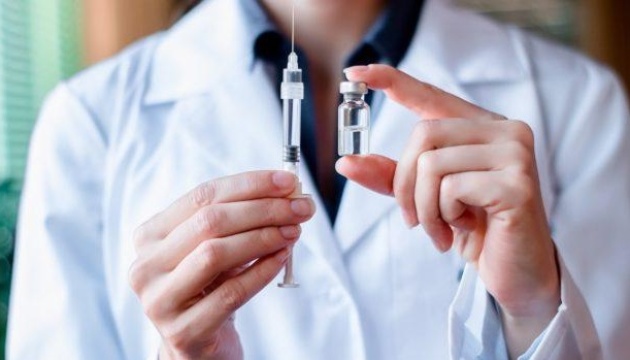
Everyone who joins the military or volunteers near the frontline should be vaccinated against hepatitis B.
This was emphasized in a comment to Ukrinform by Kateryna Bulavinova, a medical expert at UNICEF Ukraine.
“I strongly advise everyone who plans to join the military or travel close to the frontline, and in general, given the current security situation, to check if they have been vaccinated against hepatitis B. Most adults in Ukraine are not vaccinated against hepatitis B, because this vaccine was only introduced into the national immunization schedule in the early 2000s, and traditionally, very few people were covered. Therefore, there are many adults who may be providing aid and could come into contact with blood. That’s why we highly recommend getting vaccinated,” Bulavinova said.
In addition, she noted that mobilized personnel, military, rescuers, volunteers, and those working on clearing rubble after Russian attacks must also be vaccinated against tetanus. These individuals are at high risk of injury and therefore at high risk of contracting tetanus.
Bulavinova reminded that the vaccine against tetanus and diphtheria is free of charge, and every adult starting from 16 years old must be vaccinated every 10 years.
The UNICEF expert also urged Ukrainians to be very cautious if they have contact with stray or wild animals, such as dogs, cats, hedgehogs, foxes, etc.
“I advise being very careful if you are bitten by any animal. It is crucial to get a rabies shot because this is a deadly disease with no cure. Currently, Ukraine does not have enough vaccines for preventive rabies vaccination, although some professions like forest workers or those handling animals in agriculture are vaccinated preventively. Generally, post-exposure prophylaxis is practiced in Ukraine,” she explained.
Bulavinova stressed that rabies symptoms may sometimes appear six months after infection.
“So if anyone is bitten, no matter if it’s in a village, a city, or a forest, they must contact a healthcare worker to determine whether a rabies shot is needed,” she advised.
Another significant risk for Ukraine, according to Bulavinova, is measles. Although the vaccination coverage among children in Ukraine is relatively high at 80% (compared to the 95% recommended by the WHO), a measles outbreak is still very possible due to the unvaccinated 10%.
“Measles is one of the most contagious diseases and spreads very quickly from person to person. It can also affect adults, as we have seen during previous outbreaks in Ukraine. Therefore, my recommendation is: if a child missed a measles vaccination at the recommended age, they must catch up. If they missed the second dose, they must also catch up. If an older child, say 7 or 10 years old, was never vaccinated, they need two doses of the MMR vaccine (measles, mumps, rubella) one month apart. If an adult has no confirmation of having had measles or vaccination, they should also get two doses one month apart,” Bulavinova said.
She added that pregnant women who have not been vaccinated against measles should wait until after childbirth, since the measles vaccine contains live attenuated viruses and is not recommended during pregnancy.
At the same time, she noted that a person who has had measles once cannot catch it again. However, measles can sometimes be mistaken for rubella or an enteroviral infection. Therefore, adults without confirmed measles immunity are also advised to get the MMR vaccine to protect themselves against measles, mumps, and rubella.
“Rubella in adult women is dangerous because it can lead to arthritis. For example, women working in children’s groups or hospitals are at high risk of encountering childhood infections. A woman who had measles but not rubella may get the MMR vaccine to protect against rubella and mumps,” she recommended.
As reported by Ukrinform, Ukraine has recently received a new shipment of inactivated polio vaccine amounting to 138,000 doses.
Source: UNICEF expert advises military personnel, volunteers to get vaccinated against hepatitis B



